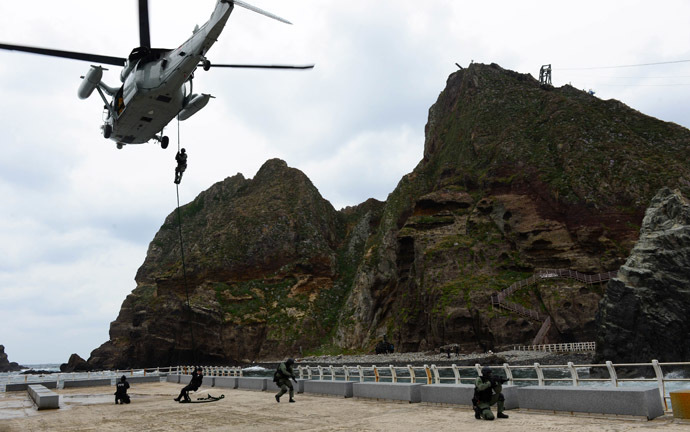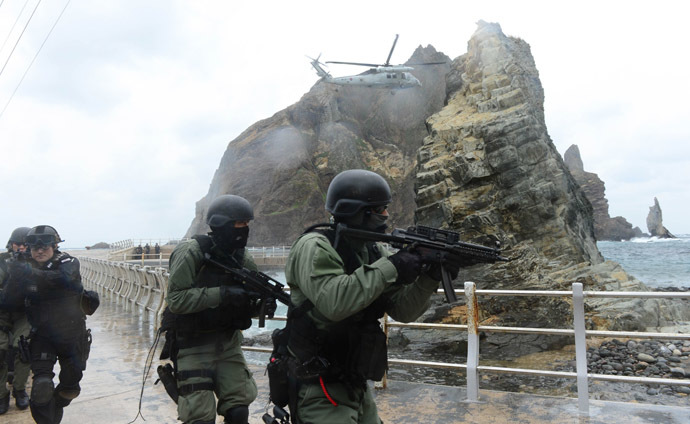South Korean military forces have incited the ire of Japan by conducting a ‘defensive drill’ at an outcrop of islands. Tokyo criticized the drill as ‘totally unacceptable.’
Five ships participated in the 8:00 am drill which took place in
the Sea of Japan, between the two countries. Among the vessels
taking part were 3,200-ton destroyers, a patrol ship, a UH-60
helicopter, and the South Korean Air Force’s F-15K combat
jets, according to an anonymous military official who spoke to
the Yonhap news agency.
“It is a regular drill aimed at repealing non-military forces
that approach Dokdo via a sea or air route,” he said.
A Defense Ministry spokesperson later told AFP that the move
illustrated “the military's will to defend” the islands.
Japan has protested the drill, with Chief Cabinet Secretary
Yoshihide Suga telling a news conference on Friday: “It’s
totally unacceptable and extremely regrettable.”

The drill and preliminary row fell around Friday’s “Dokdo Day” in
South Korea with “Dokdo” referring to the Korean name for the
islands, whereas Japan refers to them as “Takeshima.” The
disputed island grouping is comprised of the two primary islands,
surrounded by some 30 smaller rocks.
The ‘ownership’ of the islands has been a long-standing source of
controversy between Seoul and Tokyo, who lay historical
territorial claims to the groupings. Earlier in the week, the
foreign ministries of both countries took to YouTube to assert
their respective claims over the islands, with South Korea
demanding that the Japanese Foreign Ministry remove a video which
asserted its own sovereignty.

Friday saw flash mobs and festivals sweep Seoul and other South
Korean cities to mark the day 113 years ago when South Korea’s
King Gojong issued a royal decree stating his country’s ownership
of the islands. A coastguard unit has maintained a presence on
the island since 1954.
Japan holds its own ‘Takeshima Day’ on February the 22nd; an
event which sparked protests in Seoul earlier this year. In 1905,
Japan declared the area terra nullius in 1905, stating: “There
is no evidence to recognize that this uninhabited island was ever
occupied by a foreign country,” contrary to South Korea’s
claim. South Korea accuses Japan of displaying little repentance
for its colonial past, especially in regards to the Japanese
occupation of the Korean peninsula between 1910 and 1945.
